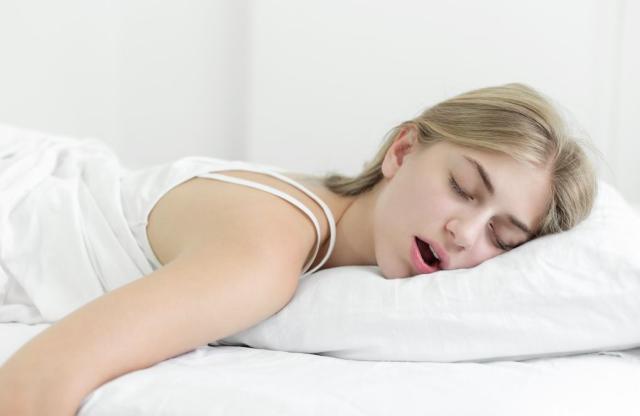Sleep apnea: It could lead to cognitive impairment, study reveals

Sleep apnea, also known as obstructive sleep apnea-hypopnea syndrome (OSA), is “a disorder of night ventilation due to the abnormally frequent occurrence of respiratory pauses”, defines the website of Health Insurance. This syndrome results in the emergence of unusually frequent episodes of interrupted or reduced breathing during sleep hours. In France, it affects 4% of the population and can cause serious health problems. While it is already known that sleep apnea can cause high blood pressure and cardiovascular problems, a new UK study reveals that it can also have negative consequences on cognitive functions.
Several cognitive functions are thought to be impaired by sleep apnea
Published in the journal Frontiers in sleep, the study was conducted on 27 men, aged 35 to 70, recently diagnosed with mild to severe sleep apnea, with no comorbidities. These individuals were compared with a control group of 7 other healthy men. While asleep, the scientists were able to measure their brainwaves, oxygen levels in the blood, heart rate, breathing, and movements of their eyes and legs.
Researchers found that people with severe sleep apnea had reduced alertness, decreased social and emotional recognition, and worries about short-term memory and executive functioning. For those with mild sleep apnea, participants had less cognitive impairment than the latter, but greater than the controls. ‘This complex correlation is still poorly understood, but it is likely to lead to widespread neuroanatomical and structural changes in the brain and associated functional cognitive and emotional deficits,’ commented Dr. Ivana Rosenzweig, lead author of the study, neuropsychiatrist and director of the Sleep and Brain Plasticity Center at King’s College London, in a statement.
Sleep apnea: Signs that should alert
In a previous interview with Femme Actuel, Dr. Madiha Ellaffi, an allergist pulmonary specialist, listed several warning signs for sleep apnea, such as excessive chronic fatigue, unrefreshing sleep patterns, sleep insomnia, anxiety and depression syndrome, unexplained recurrent malaise, high blood pressure and gestational diabetes. “In fact, it is often through a consultation for another pathology (chronic fatigue, anxiety-depressive disorders, disorders during pregnancy or menopause) that we have to check whether apnoea and more often sleep hypopnoea are not responsible for the disease complained of by the patient, or likely to worsen the symptoms,” added the expert who pointed out that the disorder is greatly underestimated in women.












